How to Socialize Your Dog to Other Dogs
Is your furry friend feeling a bit too shy around other dogs? Well, fear not! In this article, we'll guide you through the exciting world of dog socialization. From understanding the importance of socialization to preparing your pup for playdates, we've got you covered. Let's dive in and help your dog become a social butterfly!
Understanding the Importance of Dog Socialization
When it comes to our four-legged companions, socialization is essential. It plays a crucial role in shaping your dog's behavior and overall well-being. By exposing your pup to different environments, people, and, of course, other dogs, you're laying the foundation for a confident and happy pet.
Socialization goes beyond just having your dog meet other dogs at the park. It involves exposing them to various stimuli, such as different sounds, textures, and smells. This exposure helps them become well-adjusted and less likely to develop anxiety or fear in unfamiliar situations. Additionally, proper socialization can also prevent behavioral issues, such as excessive barking or destructive chewing, by teaching your dog how to cope with different stimuli.
The Role of Socialization in a Dog's Behavior
Proper socialization helps your dog develop essential social skills. It teaches them how to communicate and interact with their fellow canines, reducing the chances of aggressive or fearful behavior later in life. By exposing your pup to different situations, you're helping them build resilience and adaptability.
Furthermore, socialization plays a significant role in preventing dog-to-dog aggression. Dogs that are well-socialized from a young age are more likely to exhibit appropriate body language and signals when interacting with other dogs, leading to smoother and more enjoyable playdates and outings at the dog park.
Benefits of Proper Socialization for Dogs
The benefits of socialization are endless! By socializing your dog, you're paving the way for a harmonious existence in the canine community. They'll learn to play nicely, develop self-control, and build lasting friendships, all while having tons of tail-wagging fun!
Moreover, a well-socialized dog is more likely to be welcomed in various settings, such as pet-friendly cafes, stores, and events. This opens up a world of opportunities for you and your furry friend to explore together, strengthening your bond and creating lasting memories.
Assessing Your Dog's Current Social Skills
Before diving into a socialization frenzy, it's essential to evaluate your dog's current social skills. This will help you tailor your approach and address any underlying concerns effectively.
Socialization is a crucial aspect of a dog's development, impacting their behavior and well-being. By understanding your dog's current social skills, you can create a positive and enriching socialization experience for them.
Identifying Signs of Fear or Aggression
Observe your dog's behavior when they encounter other dogs. Are they hiding behind you or growling aggressively? These signs can indicate fear or aggression. Understanding their emotions will guide you in providing the right support and training.
Fear or aggression in social situations can stem from various factors, such as past traumatic experiences or lack of exposure to other dogs. It's essential to approach these behaviors with patience and positive reinforcement to help your dog overcome their fears and build confidence.
Recognizing Playful and Friendly Behaviors
On the flip side, look for signs of friendliness and playfulness. Is your dog wagging their tail in excitement? Are they engaging in gentle play with other pups? These behaviors are positive indicators that your furry friend is ready to socialize!
Encouraging and rewarding friendly behaviors during social interactions can strengthen your dog's social skills and help them form positive relationships with other dogs. Building a foundation of trust and comfort will enable your dog to navigate social situations with confidence and ease.
Preparing Your Dog for Socialization
Now that you've assessed your dog's social skills, it's time to prepare them for the fantastic world of doggie social gatherings. Socialization is a crucial aspect of your dog's development, helping them build confidence, learn proper behavior, and form positive relationships with other dogs and humans.
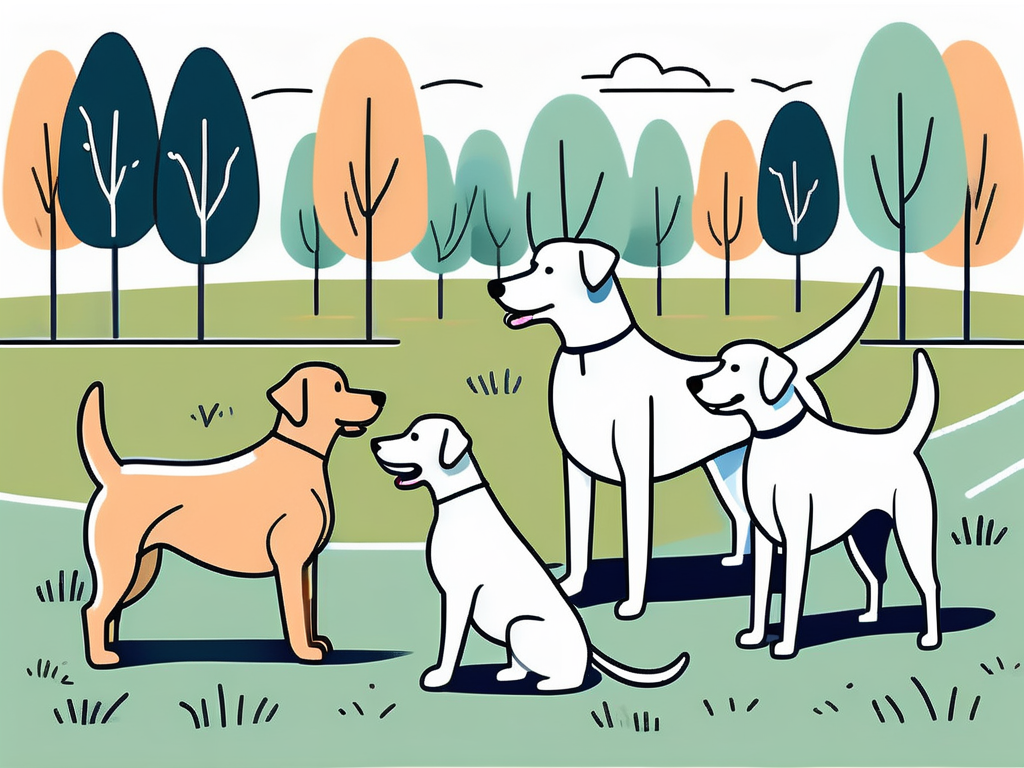
Introducing your dog to different environments, people, and animals can help prevent fear, anxiety, and aggression in the future. It's an essential step in raising a well-rounded and well-adjusted canine companion.
Training Basics Before Socialization
Equip your pup with some basic obedience training. Teach them commands like "sit," "stay," and "leave it." These skills set the groundwork for a well-behaved dog that's ready to socialize like a pro. Obedience training not only enhances your dog's responsiveness to commands but also fosters better communication between you and your furry friend.
Consistent training sessions help strengthen the bond between you and your dog, creating a trusting and respectful relationship. Positive reinforcement techniques, such as treats and praise, can make learning fun and rewarding for your canine companion.
Ensuring Your Dog's Health and Safety
Prioritize your dog's health before entering the socialization scene. Make sure they're up to date on vaccinations and protected against parasites. Regular visits to the veterinarian for check-ups and preventive care are essential to ensure your dog is in optimal health.
Proper nutrition, exercise, and grooming also play a significant role in maintaining your dog's overall well-being. A healthy and happy dog is more likely to have positive social interactions and enjoy the company of other dogs and people.
Techniques for Introducing Your Dog to Other Dogs
It's finally time to introduce your furry companion to their fellow canine pals. Let's explore some tried-and-true techniques to make these introductions a paw-sitive experience for all.
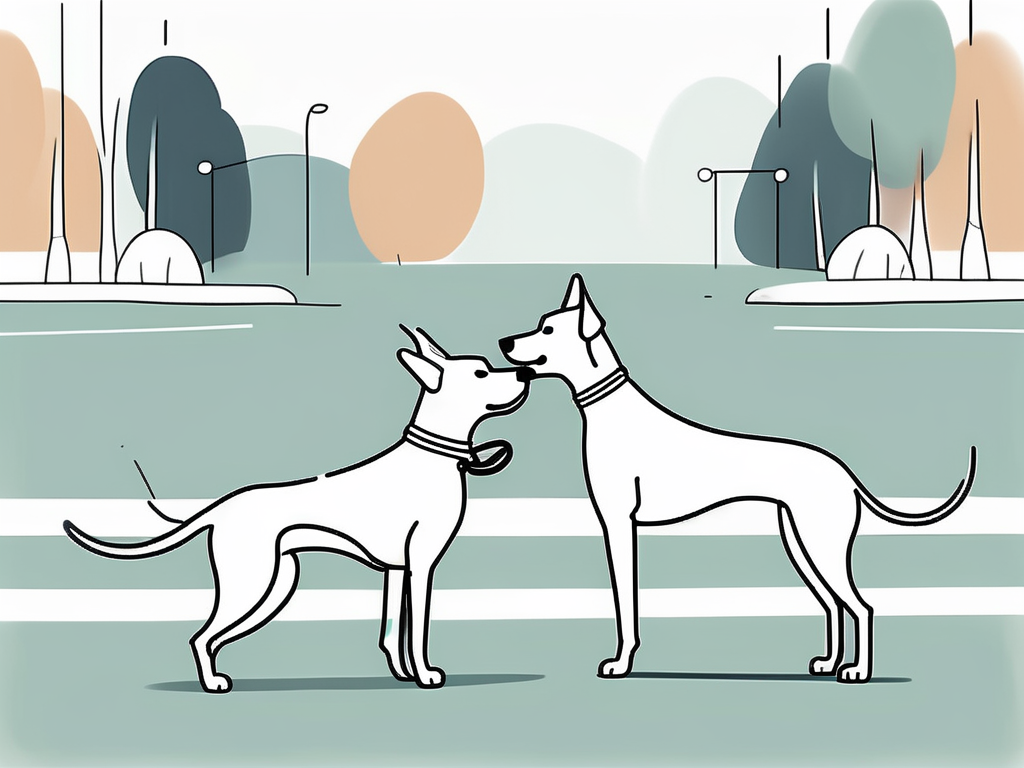
Introducing your dog to other dogs can be an exciting but delicate process. It's essential to approach these introductions with care and consideration for both your furry friend and their potential new playmate. By following some key techniques, you can help ensure a smooth and harmonious meeting between the pups.
Controlled Introduction Techniques
Start with controlled interactions in a controlled environment. Begin by introducing them to well-behaved dogs in a calm and controlled setting. This allows your pup to gradually become comfortable and build positive associations with other furry friends.
During these initial introductions, pay close attention to your dog's body language and behavior. Look for signs of stress or discomfort, such as raised fur, growling, or avoidance. If you notice any of these signs, gently redirect the interaction and give your dog space to relax before trying again.
Using Neutral Territory for Introductions
Neutral territory is key when introducing your pup to new friends. This ensures that neither dog feels overly protective of their territory, reducing the chances of territorial disputes. So, swap out your backyard for a park and let the adventure begin!
When selecting a neutral location for the introduction, choose a spot that is quiet, spacious, and free from distractions. This will allow the dogs to focus on each other without feeling overwhelmed or threatened. Remember to keep the initial meeting brief and positive, gradually increasing the duration as the dogs become more comfortable with each other.
Gradual Socialization: Taking Small Steps
Rome wasn't built in a day, and your dog's socialization journey won't be either. Remember, it's a gradual process that requires patience and understanding.
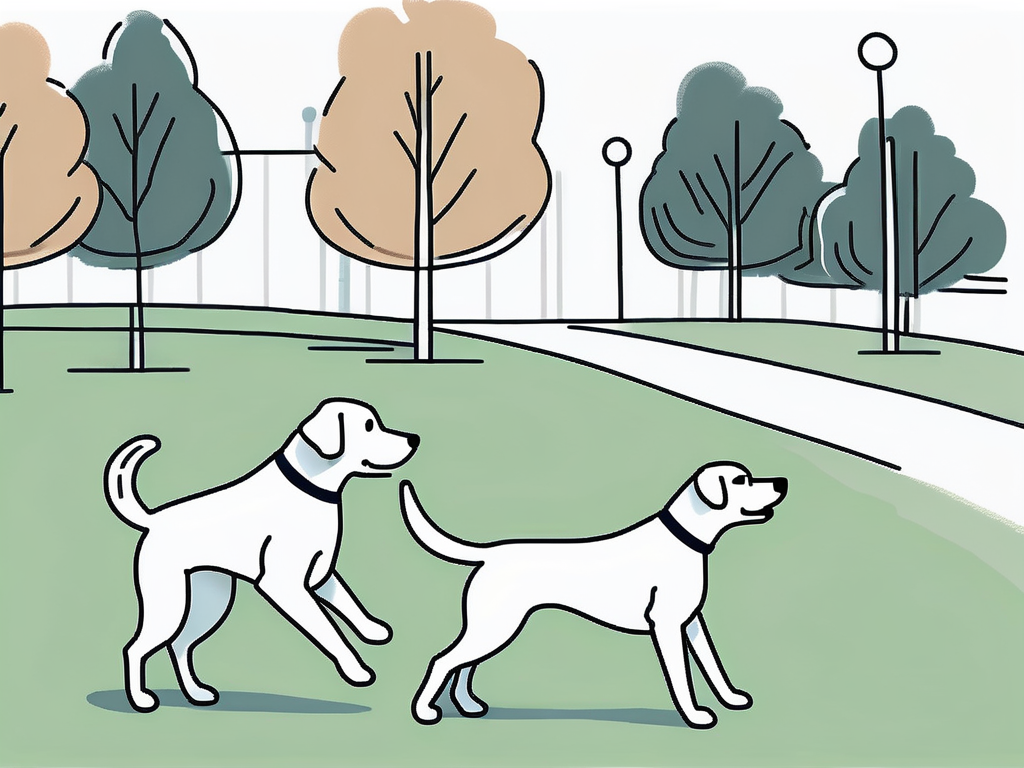
Socializing your dog is a journey filled with small victories and moments of growth. Each interaction, whether big or small, contributes to your dog's overall social development. Celebrate these milestones along the way, as they signify progress and a deeper bond between you and your furry companion.
The Role of Dog Parks in Socialization
Dog parks can provide fantastic opportunities for socialization. However, ensure your dog has mastered basic obedience commands and is comfortable with controlled introductions before jumping into the chaotic world of the dog park.
When introducing your dog to a new environment like a dog park, observe their body language closely. Look for signs of stress or discomfort, and be prepared to intervene if necessary. Gradually increase the duration of visits as your dog becomes more confident, always prioritizing their well-being and comfort.
Organizing Play Dates for Your Dog
Play dates are a fantastic way to encourage socialization in a controlled and familiar setting. Inviting a trusted friend and their well-behaved pup over for a fun and supervised play session helps your dog build lasting friendships and positive associations with other dogs.
During play dates, monitor the interactions between the dogs closely. Look for signs of healthy play, such as reciprocal chasing and play bows. Intervene if play escalates into roughhousing or if any signs of discomfort arise. Creating a positive and safe environment during play dates sets the foundation for successful socialization experiences for your dog.
With these tips in your back pocket, you're well-equipped to transform your shy pup into a social butterfly. Remember, a little patience and a lot of positive reinforcement go a long way in the world of dog socialization. So, lace up those walking shoes, grab your pup's favorite toy, and embark on the exciting adventure of socializing your dog to other dogs!

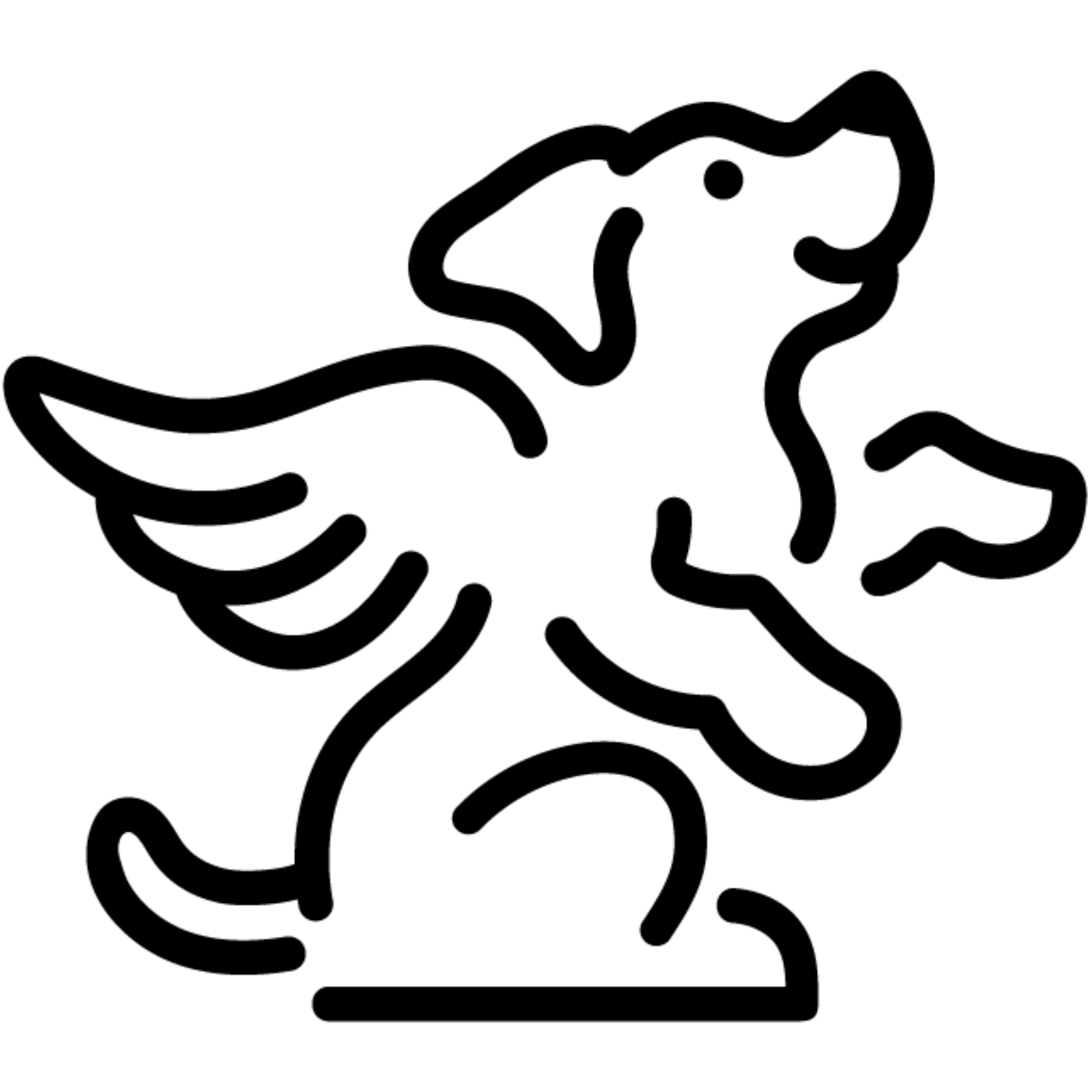

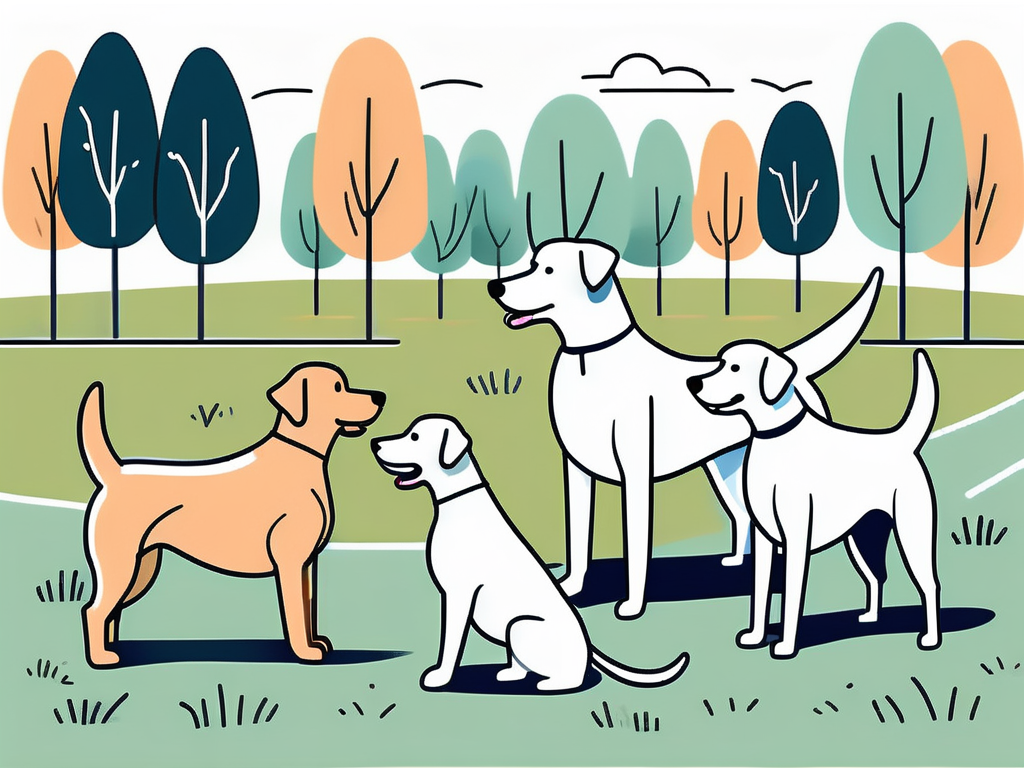
Share:
5 Ways to Socialize Your Dog
How to Socialize Your Dog with Humans